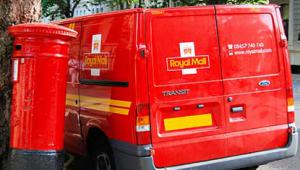The spending watchdog’s report, published today, found that the charity enjoyed much larger government grants than many other voluntary bodies that worked with children, as well as a tax break of almost £600,000, while prolonged and repeated concerns about the charity’s financial stability were put aside.
Kids Company filed for insolvency in August 2015 amid allegations of sexual and physical abuse, casting further doubt over the charity’s ability to secure future funding.
Commenting on the findings, Public Accounts Committee chair Meg Hillier said: “It is unbelievable that over 13 years of taxpayers’ money has been given to Kids Company with little focus on what it was actually achieving for the children it was supporting.”
She said that despite concerns being raised repeatedly within Whitehall “little action was taken”, and further grants were awarded footed by the taxpayer.
The NAO found that Kids Company received a total of £42m in grants from various government departments ‒ with the Department for Education (DfE) being the biggest contributor at £28m ‒ and £4m from local authorities and National Lottery bodies.
In 2011, the charity received over twice the amount given to any other grant recipient, and the charity’s 2003 accounts show that Inland Revenue (now HM Revenue & Customs) wrote off its tax debts of £590,000.
The auditors said evidence of official concerns regarding the charity’s financial situation date back as far as 2003.
They observed that ministers often gave in to assertions from the charity that it would have to make redundancies and service closures without continued government grants.
The report noted that, when met with resistance from government officials, Kids Company would often express fears of insolvency both to ministers and the media ‒ a strategy that proved repeatedly profitable for the charity.
The government was aware of the charity’s reliance on government grants. In April 2015, for example, it paid the charity’s entire annual grant for 2015/16 to help with cash flow problems.
While the government did make efforts every funding round to improve the charity’s self-sufficiency, the NAO report found that, until 2013, it relied largely on the charity’s self-assessments to monitor its performance. After that point, the Cabinet Office took a more proactive stance regarding the charity’s oversight, requesting an external review of its financial management and governance.
In 2015, against further advice from officials, £3m was paid to Kids Company for restructuring towards greater long-term sustainability. It was later requested some of this money be repaid as the government terminated its grant agreement with the charity.
The report said that the government had continued to fund the charity up until this summer on the basis of the essential services it provided and the detrimental effects closure would have on the vulnerable young people using them.
Responding to the NAO’s conclusions, a government spokesman said: “Since 2002, successive governments have provided financial assistance to the charity to help it deliver services for vulnerable young people.
“The welfare of young people has always and continues to be our top priority, and we will continue to work with local authorities, charities and youth clubs in Lambeth, Southwark, Camden and Bristol to support young people with the services they need.”
Since its closure the charity has been criticised for failing to build up cash reserves and a number of other issues, including allegedly giving cash handouts to young people.
“Government departments have questions to answer about how they held the charity to account for spending taxpayers’ hard earned money,” said Hillier, who added the PAC will question government officials on this issue next week.
Responding to the conclusions, CIPFA chief executive Rob Whiteman said the report underscored the need for charities and other public organisations to have sound financial management systems in place, with clear accountability and effective monitoring and evaluation.
“Kids Company’s cash flow management was clearly inadequate, with government funding sometimes being used to provide short term solutions to its consistent cash flow difficulties,” Whiteman said. “Charities, like any public organisation, have a duty to ensure they are using public money in a sustainable and transparent manner. The report also stressed that government funders, up until a review in 2013, took an incredibly lax attitude towards monitoring and reviewing output and outcomes. This is particularly astonishing given the austerity measures, financial constraints and the drive for efficiency being sought at this time in both public and third sectors.”
Charity funders ought to play a more proactive role in supporting the delivery of outputs and outcomes, he added: “Going forward, the government and other funders must ensure they look beyond the public face of a charity and, before parting with so much as a pound of public money, properly scrutinise the charity’s governance, capacity for good financial management and its performance against stated aims.”
Last week, Kids Company founder and chief executive Camila Batmanghelidjh and chair of trustees Alan Yentob gave evidence to the Commons Public Administration Select Committee in which they denied that financial difficulties were the reason for the charity’s collapse.



















